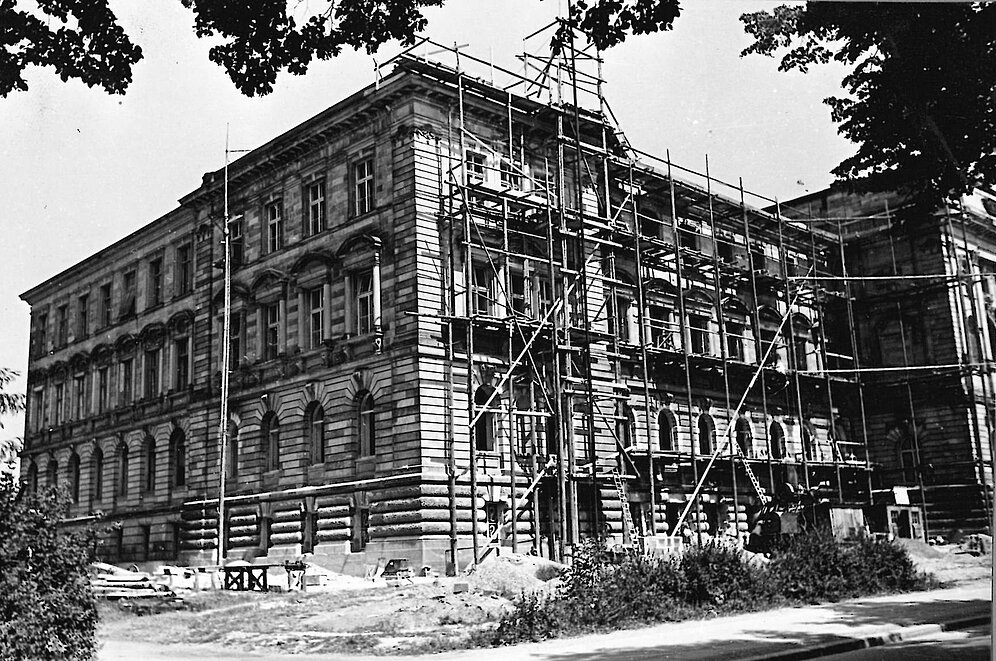Rectors in the post-war period
Common law and corporate self-government
Part 6 of 7
Since not all areas of social life could be completely overhauled, people in many places reverted to familiar structures. In Würzburg, on the other hand, people did without a new constitution for more than 20 years and acted according to customary law.
Legal continuities exist beyond the Third Reich
After the end of the "Third Reich", the question of a constitution for the university arose. Parts of the National Socialist laws had been repealed by the military government without always being replaced by new regulations; moreover, most of the laws from the years 1933-1945 continued to apply unchanged. For the university, rebuilding from the ruins was the first priority, but by the time of the first rector election at the latest, the question arose as to the procedure to be followed, since arbitrary appointment by the Reich Ministry was no longer an option. One would have expected a deliberate return to the university's pre-1933 constitution, not least because, despite the drastic upheaval of the National Socialist dictatorship, this phase had lasted less than 12 years and many of the professors knew the pre-1933 procedure from their own experience. However, this did not happen.
The struggle for a new constitution fails
In Bavaria, proposals were made by the Ministry for a new constitution for Bavarian universities, but these were as fruitless for Würzburg as the attempt to obtain approval for its own draft constitution. Attempts by the American military government to create a university constitution also failed. For the rector election in 1949, therefore, for lack of a better solution, one fell back on the provisions of the draft constitution drawn up by the Ministry only at the end of 1946. Gaps in this draft, such as the majority required for the election, could be resolved by Senate resolution.
University operates in a vacuum of legal ambiguity and common law
The attempt to draw up a new constitution for the Julius Maximilians University had been abandoned. The university took advantage of the legal ambiguity and was thus able to defend the freedom to decide without a constitution or statutes according to (its own) common law entirely in the sense of corporative self-government. It was only after more than 20 years that the University of Würzburg was the last of the 31 West German universities to be forced to abandon customary law in favor of a constitution.







